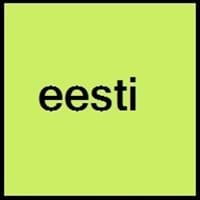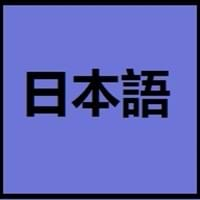Estonian vs Japanese
Countries
Estonia, European Union
Japan
National Language
Estonia, Gambia
Japan
Second Language
Not spoken in any of the countries
Not spoken in any of the countries
Speaking Continents
Europe
Asia, Pacific
Minority Language
Denmark, Russia, Sweden
Palau
Regulated By
Institute of the Estonian Language
Agency for Cultural Affairs (文化庁) at the Ministry of Education
Interesting Facts
- Estonian language is considered to be powerful symbol of Estonian identity and culture.
- Estonian language has adopted many words with Finnish language.
- In Japanese Language, there are 4 different ways to address people: kun, chan, san and sama.
- There are many words in Japanese language which end with vowel letter, which determines the structure and rhythm of Japanese.
Similar To
Finnish
Korean Language
Derived From
Not Available
Not Available
Alphabets in
Estonian-Alphabets.jpg#200
Japanese-Alphabets.jpg#200
Writing Direction
Left-To-Right, Horizontal
Left-To-Right, Horizontal, Top-To-Bottom
Hello
Tere
こんにちは (Kon'nichiwa)
Thank You
aitäh
ありがとう (Arigatō)
How Are You?
kuidas sul läheb
お元気ですか (O genki desu ka?)
Good Night
Head ööd
おやすみなさい (Oyasuminasai)
Good Evening
Tere õhtust
こんばんは (Konbanwa)
Good Afternoon
Tere päevast
こんにちは (Konnichiwa!)
Good Morning
Tere hommikust
おはよう (Ohayō)
Please
Palun
お願いします (Onegaishimasu)
Sorry
Vabandust
ごめんなさい (Gomen'nasai)
Bye
Head aega
さようなら (Sayōnara)
I Love You
ma armastan sind
愛しています (Aishiteimasu)
Excuse Me
Vabandage
すみません (Sumimasen)
Dialect 1
Keskmurre
Sanuki
Where They Speak
Gabon, Northeastern coast of Estonia
Kagawa
How Many People Speak
Not Available
Where They Speak
Georgia, South Estonia
Fukuoka
Dialect 3
Idamurre
Kansai
Where They Speak
France, Northwestern shore of Lake Peipsi.
kansai
Speaking Population
Not Available
Native Name
eesti keel
日本語
Alternative Names
Eesti keel
Not Available
French Name
estonien
japonais
German Name
Estnisch
Japanisch
Pronunciation
Not Available
/nihoɴɡo/: [nihõŋɡo], [nihõŋŋo]
Ethnicity
Estonians
Japanese (Yamato)
Language Family
Uralic Family
Japonic Family
Subgroup
Finno-Ugric
Not Available
Branch
Finnic
Not Available
Early Forms
No early forms
Old Japanese, Early Middle Japanese, Late Middle Japanese and Early Modern Japanese
Standard Forms
Estonian
Japanese
Language Position
Not Available
Signed Forms
Estonian Sign Language
Signed Japanese
Scope
Macrolanguage
Individual
ISO 639 6
Not Available
Not Available
Glottocode
esto1258
nucl1643
Linguasphere
No data available
45-CAA-a
Language Type
Living
Living
Language Linguistic Typology
Subject-Verb-Object
Subject-Object-Verb
Language Morphological Typology
Agglutinative
Agglutinative, Synthetic
Estonian and Japanese Language History
Comparison of Estonian vs Japanese language history gives us differences between origin of Estonian and Japanese language. History of Estonian language states that this language originated in 13th century whereas history of Japanese language states that this language originated in 1185. Family of the language also forms a part of history of that language. More on language families of these languages can be found out on Estonian and Japanese Language History.
Estonian and Japanese Greetings
People around the world use different languages to interact with each other. Even if we cannot communicate fluently in any language, it will always be beneficial to know about some of the common greetings or phrases from that language. This is where Estonian and Japanese greetings helps you to understand basic phrases in Estonian and Japanese language. Estonian word for "Hello" is Tere or Japanese word for "Thank You" is ありがとう (Arigatō). Find more of such common Estonian Greetings and Japanese Greetings. These greetings will help you to be more confident when conversing with natives that speak these languages.
Estonian vs Japanese Difficulty
The Estonian vs Japanese difficulty level basically depends on the number of Estonian Alphabets and Japanese Alphabets. Also the number of vowels and consonants in the language plays an important role in deciding the difficulty level of that language. The important points to be considered when we compare Estonian and Japanese are the origin, speaking countries, language family, different greetings, speaking population of these languages. Want to know in Estonian and Japanese, which language is harder to learn? Time required to learn Estonian is 44 weeks while to learn Japanese time required is 88 weeks.





